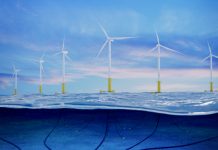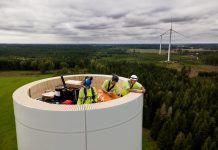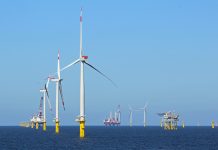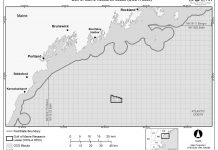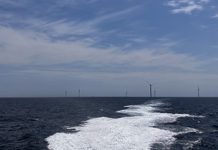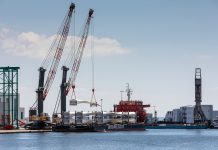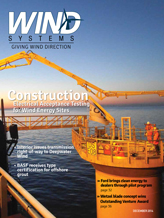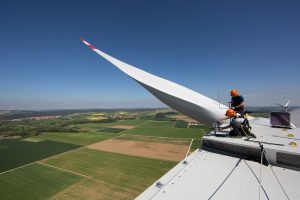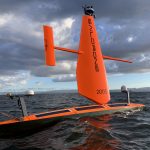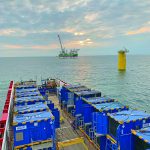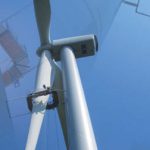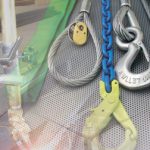Wanzek Construction, Inc. has spent the past four decades building an organization that successfully erects infrastructure for strong sectors including power, renewable energy, oil & gas, heavy/civil, and industrial agriculture.
Backed by parent company, MasTec, Inc., a leading North American infrastructure construction company, Wanzek is equipped with a comprehensive understanding of the industries it serves, innovative technology, and a wholly owned fleet of state-of-the-art specialty construction equipment. The company has geographic reach, scalability and overall financial strength. But Wanzek’s most valuable asset, according to the company’s leadership, is its people.
With interrelated, client-focused teams, including a national workforce of OQ-qualified professionals, Wanzek has established a work process that supports the company’s policy to provide services that exceed client expectations and requirements. Among the many roles that maintain Wanzek’s success, the project manager is key to managing and controlling the outcome of a project. Arnie Jelinek, Wanzek’s vice president, cites the company’s project managers as instrumental in navigating the unique characteristics and challenges that are inherent in most job sites.
“Planning, organization and communication before, during and after site work is essential to each project’s success,” Jelinek said. “Wanzek’s project management team is continuously elevating site management through sound procedures, controls, and effective communication. These dedicated individuals have a special set of communication and leadership skills that help drive the whole team through the dynamic nature of a typical day.” Figure 1
A typical day can vary based on industry focus. As exemplified by a wind energy project, a typical day for a project manager includes a wide range of tasks including reviewing project status, reviewing safety plans, meeting with owners, quality control, finding and addressing issues, coordinating with engineers and supervisors, leading project teams, forecasting, maintaining material flow, managing timelines, and overseeing budgets.
Wind projects are very fast paced. Once a contract has been signed and a plan has been finalized, there is no downtime until the project has been completed. A typical wind project takes six months. This challenging pace is what engages Nick Ibach, project manager at Wanzek.
“I really enjoy the quick pace of a wind project,” Ibach said. “It is very hands-on and requires a consistent level of attention. A project with a tight schedule gives me the opportunity to engage a range of skills and provides a tremendous sense of satisfaction upon completion.”
Led by project managers like Ibach, Wanzek’s wind teams have installed more than 5400 MW of wind generation capacity across the country for some of the biggest names in the industry. Services include building, expanding, and maintaining facilities while working closely with owners to develop detailed, conceptual budgets and construction schedules, address topography challenges and complete civil and electrical design. The successful completion of each project is due largely to communication between project managers and owners. During construction, Ibach spends one to two weeks a month on-site. He meets with owner representation multiple times a day by phone and on-site weekly. Figure 2
“Communication is critical,” Ibach said. “It is the means by which everyone on the team, from owner to superintendents to our field force, stay informed regarding project status, any challenges that have been presented and the chosen method for handling them. I consider communication to be one of the ways with which I try to lead by example. If everyone is informed and has the right tools for the job, we will provide a higher level of service.”
Other essential qualities for a project manager include the ability to coordinate people and processes, organizational and planning skills, as well as dedication and flexibility. Ibach cites coordination as fundamental to keeping a project moving forward. The long hours involved in a project require dedication and the implementation of prioritization methods to stay on course. Even with high levels of planning and coordination, problems can present themselves. Incremental weather or unexpected issues like concrete breaking can challenge a team to regroup quickly.
“We have learned to be dime-rate meteorologists,” Ibach joked “I begin a project as prepared as possible but knowing that my crew and I need to be adaptable. Part of being successful on a project is having the ability to face a challenge, regroup, and quickly implement a new plan that keeps the project on track and affects the schedule and budget as little as possible.” Figure 3
Some challenges come with the territory. As wind farms are generally constructed over hundreds of square miles, it can be a difficult to coordinate a wind project geographically. Unlike many construction sites, a project manager or supervisor cannot physically walk the whole project. Getting from a turbine installation to the laydown yard can often be an hour-long drive. Ibach believes that successful coordination relies on having a really great team.
“We have built a talented team and developed a high level of trust,” Ibach says. “Our people are safety-oriented, skilled and dedicated people who are invested in the success of the projects they work on.”
Wanzek is continuously strengthening teams by hiring the top technicians and operators and offering continual training.
For more information about Wanzek, its teams, and its projects, visit www.wanzek.com.



